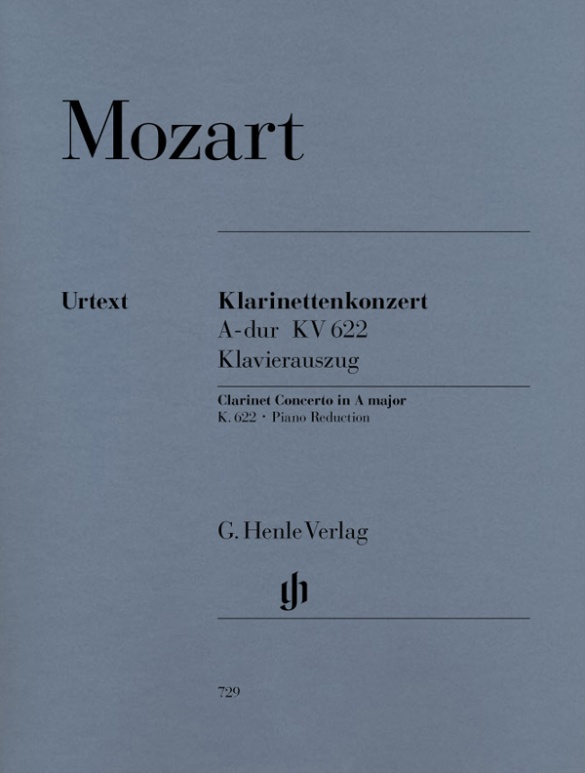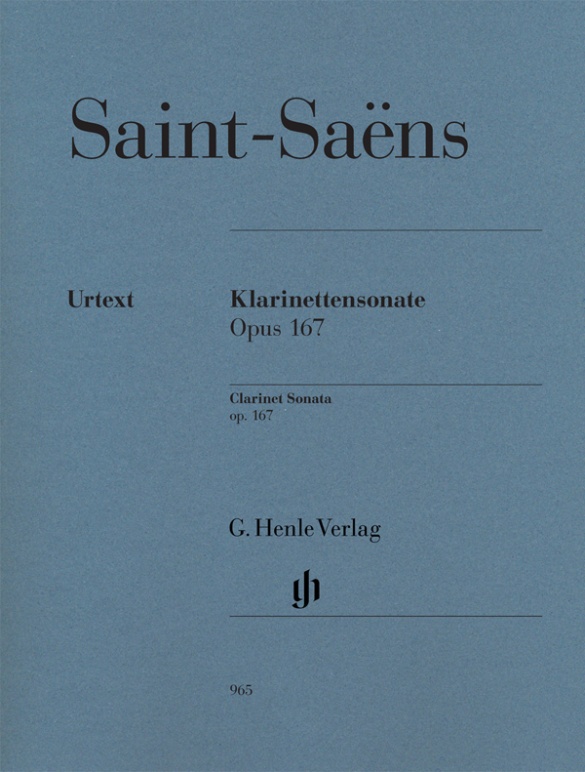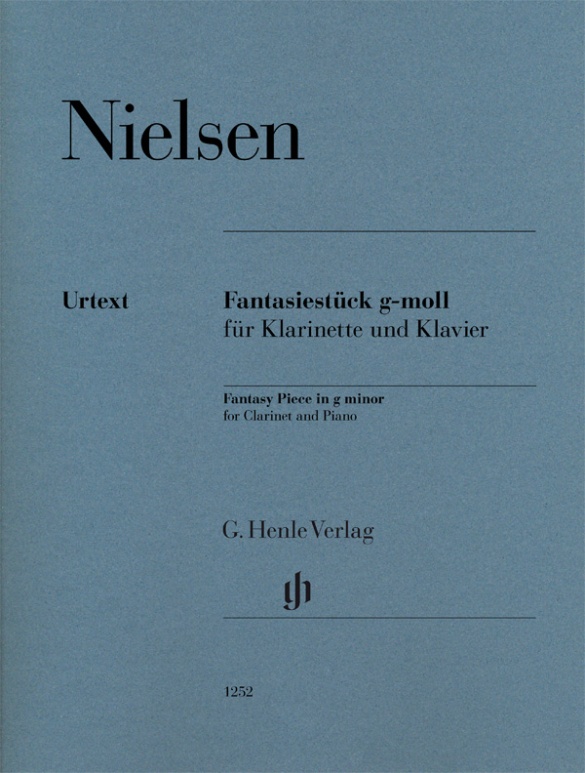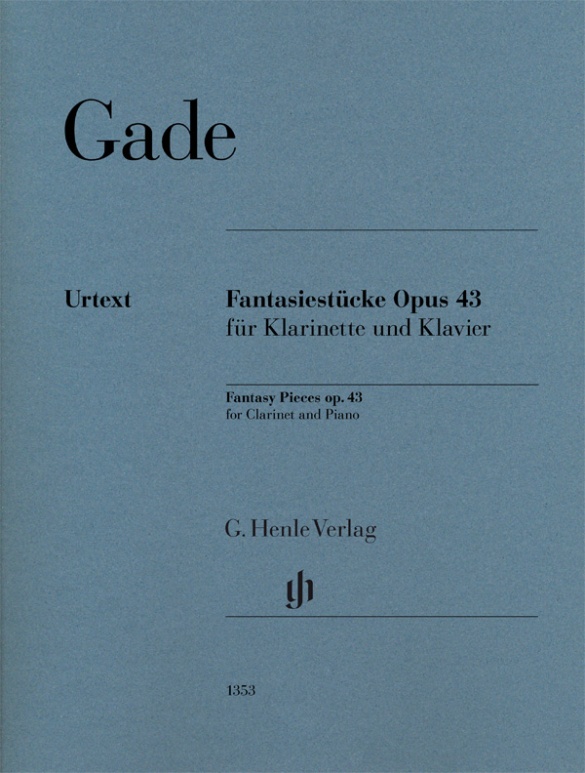

Niels Wilhelm Gade
Fantasy Pieces op. 43
Along with Robert Schumann’s identically titled op. 73, the Fantasiestücke of 1864 by the Danish composer Niels Wilhelm Gade are an essential part of the repertoire of all clarinettists. Gade lived in Leipzig for a long time and had been among Schumann’s close friends. With this deeply romantic composition, he made an important contribution to establishing the clarinet as a chamber-music soloist. The four pieces in this collection can of course be performed separately, and are ideal teaching material. Our editor, the clarinettist Nicolai Pfeffer, has drawn upon the German and Danish first editions and the autograph in Copenhagen as sources, and consequently has been able to eliminate several discrepancies found in older editions.
Read more about this edition in the Henle Blog.
Content/Details
About the Composer
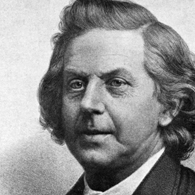
Niels Wilhelm Gade
Composer, conductor, and organist, regarded as one of the most important figures in Danish music history. His early works in particular are characterized by a musical language dubbed nationalist due to its strong references to Nordic folk tunes; over the course of his career this yields to a more neutral and more academic compositional manner. His rich oeuvre comprises orchestral and vocal works, chamber music and works for keyboard.
| 1817 | Born in Copenhagen on February 22, the son of an instrument maker. |
| from 1832 | Accepted into the Chapel Royal as a pupil of its concertmaster, Frederik Wexschall. Composition lessons with A. P. Berggreen, who awakens Gade’s interest in Nordic folk melodies. |
| 1840 | First Prize in the Copenhagen Musical Society’s competition with his overture “Efterklange af Ossian” (“Echoes of Ossian”), op. 1. |
| 1843 | Premiere in Leipzig of his Symphony no. 1 in C minor under Mendelssohn’s baton. |
| from 1843 | Moves to Leipzig, where he socializes in the circles around Mendelssohn and Schumann. |
| 1844 | Premiere of his Symphony no. 2 in E major, op. 10. Travels lead him through Italy, Austria, and Switzerland. He becomes director of the Gewandhaus concerts and obtains an appointment at the Leipzig conservatory. |
| 1847/48 | Returns to Copenhagen. |
| from 1850 | Director of the concerts of the Copenhagen Musical Society. |
| from 1851 | Organist of the Garrison Church. |
| from 1855 | Organist of the Church in Copenhagen’s Holmen district. |
| from 1862 | As a celebrated conductor of his own works he regularly participates in music festivals abroad, including in Birmingham, Holland, and Hamburg. |
| 1890 | Dies in Copenhagen on December 21. |
About the Authors
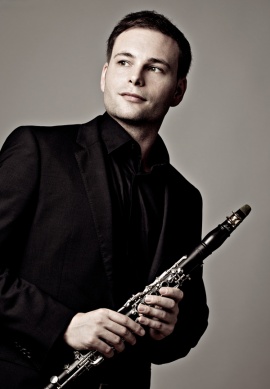
Nicolai Pfeffer (Editor)

Klaus Schilde (Fingering)
Prof. Klaus Schilde, born in 1926, spent his childhood in Dresden. There he was greatly influenced by Walter Engel, who taught him the piano (Kodaly method), composition and violin. From 1946–1948 he studied at the music conservatory in Leipzig with Hugo Steurer. After moving to the west in 1952 he studied with Walter Gieseking and Edwin Fischer, as well as with Marguerite Long, Lucette Descaves and Nadia Boulanger in Paris.
Schilde won numerous prizes. From 1947 onwards he gave concerts as a soloist and chamber musician on almost every single continent with renowned orchestras. He taught at the music conservatories in East Berlin Detmold, West Berlin, Munich, Tokyo (Geidai) and Weimar. From 1988–1991 he was President of the Staatliche Hochschule für Musik und Theater in Munich, where he also taught for decades as a professor. There are numerous radio and television broadcasts with Klaus Schilde as well as CD recordings. Schilde has contributed fingerings to almost 100 Henle Urtext editions.
Prof. Klaus Schilde passed away on 10 December, 2020.
Product Safety Informations (GPSR)

G. Henle Verlag
Here you can find the information about the manufacturer of the product.G. Henle Verlag e.K.
Forstenrieder Allee 122
81476 München
Germany
info@henle.de
www.henle.com
I Fantasiestücke di Gade sono tutt’oggi apprezzati. La nuova edizione, però, aumenterà ancora l’interesse per la musica da camera del maestro danese.
Suonare news, 2018This urtext edition is full of interesting information, not only about Niels Gade, but also about the word “fantasy” or “fantasia”. Editor Nicolai Pfeffer explains that in the 19th century, the highly popular “fantasy” form was “rather unrestrictive”. This printed edition seems to be flawless, and the phrasings and articulations are carefully marked. It includes three pages of the sources used and the justifications for edits made. Highly recommended!
The Clarinet, 2019recommendations
autogenerated_cross_selling
Further editions of this title
Further editions of this title


